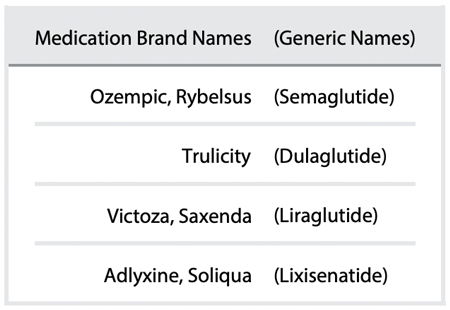|
SafeMedicationUse Newsletter
|
|
Using Ozempic? What You Need to Know before a Medical Procedure or Surgery
2023-10-04
-

A new risk has been found for patients who take Ozempic (generic name semaglutide) or related medications (see box) and undergo anesthesia for surgery or another procedure. These medications, used to treat diabetes or for weight loss, slow the movement of food and liquids through your stomach. This means that even if you follow the fasting instructions for the surgery or procedure, your stomach may not be empty when you are given sedation ("put under anesthesia"). This increases the chance of food coming back up from your stomach and being inhaled into your lungs during or after your procedure. This problem is called aspiration and can cause serious complications like pneumonia and lung damage.
SafeMedicationUse.ca learned about a person who was taking Ozempic (semaglutide) for weight loss. Ahead of a planned medical procedure, they followed the instructions to stop using the medication a week beforehand. They also did not eat solid food for 12 hours before the procedure. However, after waking up after the surgery, they vomited a large amount of food. Fortunately, they received treatment quickly that prevented harm.
SafeMedicationUse.ca has the following tips to reduce the risk of aspiration for patients taking Ozempic or related medications and who are preparing for a procedure or surgery:
-
If you have an appointment before the procedure, bring all your medications with you. Tell your health care team that you use one of the medications listed in the box above. Ask what steps can be taken before and during your procedure to reduce the risk of aspiration. For example, your team may ask you to:
-
Stop taking the medication earlier than usual.
-
Make special diet changes, such as only clear liquids for 24 hours before the procedure.
-
When you arrive on the day of your procedure or surgery, remind your health care team that you use one of these medications. Your team can take steps to manage the risk.
This newsletter was developed in collaboration with Best Medicines Coalition and Patients for Patient Safety Canada.
Recommendations are shared with healthcare providers, through the ISMP Canada Safety Bulletin, so that changes can be made together.
|

